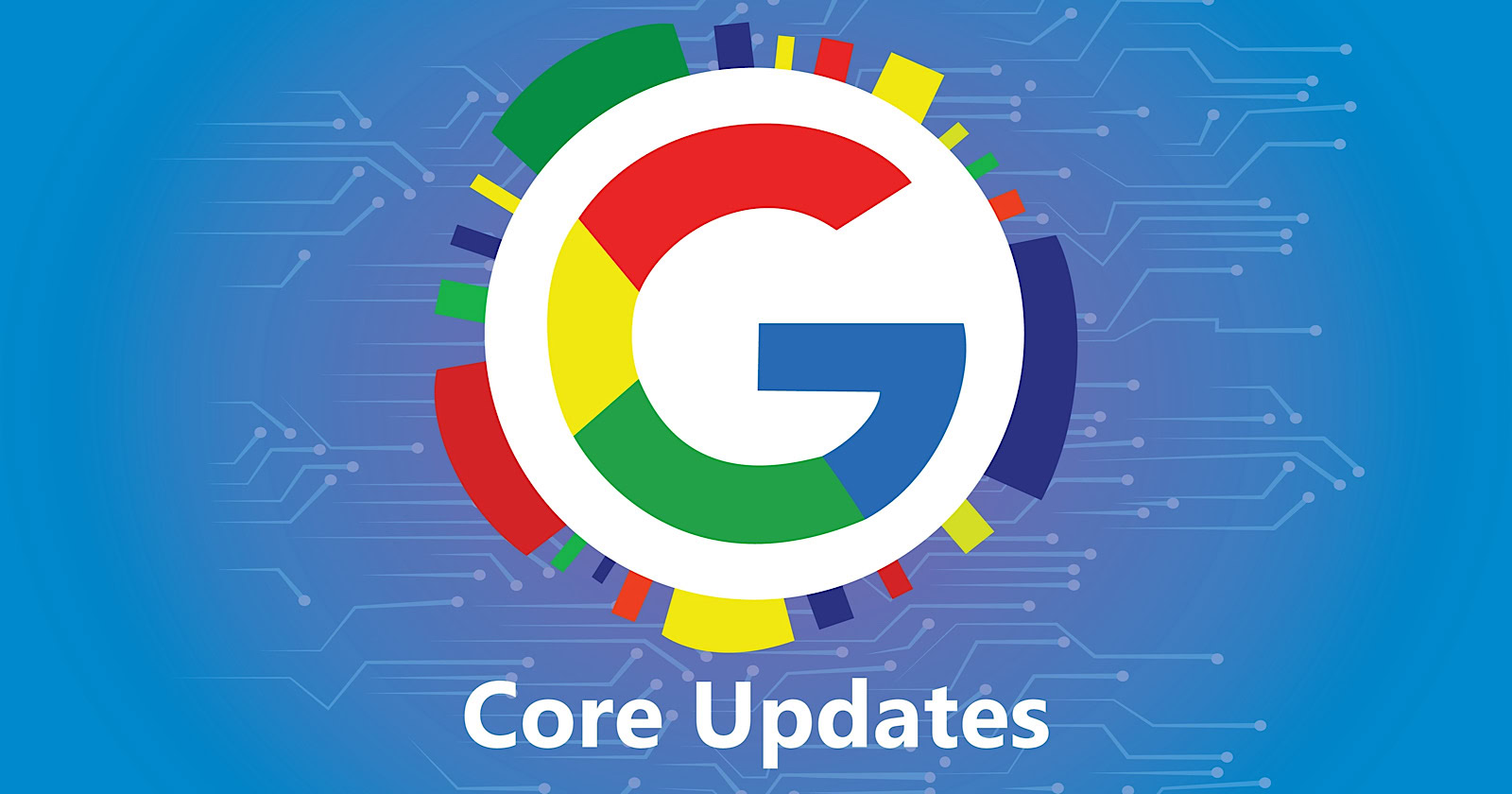SEO
LinkedIn Offers 250 AI Courses For Free Until April

LinkedIn is unlocking 250 AI courses, available for free until April 5.
According to LinkedIn’s data, the skills required for the average job globally will change by 68% by 2030.
For SEO professionals, this means adapting to new AI-driven tools and techniques that can enhance and streamline their work.
LinkedIn’s free AI courses cover a wide range of topics, from general AI literacy to specialized applications for business, creative, and technical professionals.
Courses on prompt engineering, building AI-powered apps, and applying AI in content creation are particularly relevant to SEO professionals who want to stay ahead of the curve.
Most Relevant Courses For SEO Professionals
Several of the 250 unlocked courses stand out as the most valuable for SEO professionals.
General AI-literacy Courses
Building AI Literacy and Responsible AI Foundations provide a solid understanding of AI concepts, capabilities, and ethical considerations. This knowledge is crucial for SEO professionals to leverage AI tools and techniques while ensuring effective, responsible use.
Develop Your Prompt Engineering Skills teaches how to craft effective prompts for AI models. Well-designed prompts can generate more accurate and relevant content, keywords, and insights, improving SEO performance.
Generative AI For Different Roles
Building Generative AI Skills for Business Pros can provide the knowledge to communicate the value of AI-driven SEO to stakeholders.
Building Generative AI Skills for Creative Pros is valuable for SEO professionals who create content, as AI can assist in generating ideas, optimizing content structure, and ensuring that content is on-topic and engaging.
Building Generative AI Skills for Developers is helpful for SEO professionals who work closely with web developers. It allows for the creation of more search engine-friendly websites and the implementation of AI-powered SEO tools.
GAI For Power Users
Hands-On Projects for OpenAI-Powered Apps and Hands-On AI: Building LLM-Powered Apps provides practical experience in building AI applications.
SEO professionals with these skills can create custom tools to automate and optimize various SEO tasks, such as keyword research, content optimization, and link analysis.
Addressing The Growing Demand For AI Skills
The demand for AI literacy is rising, as evidenced by a significant increase in learners engaging with AI content on LinkedIn.
A recent LinkedIn report found that 4 in 5 people want to learn more about using AI in their profession, highlighting the growing interest in AI skills across industries.
AI Literacy As A Job Security Strategy
In addition to the growing demand for AI skills, organizations are increasingly concerned about employee retention.
The LinkedIn report revealed that 90% of organizations are worried about retaining their workforce and providing learning opportunities is their top strategy for keeping employees engaged and loyal.
SEO professionals can use LinkedIn’s free AI courses to gain valuable skills and improve their job security and career prospects.
In Summary
SEO professionals can leverage LinkedIn’s AI courses to develop the specific skills they need to adapt to the changing landscape of their field.
Looking ahead, LinkedIn predicts AI-powered coaching and personalized learning will become more common, helping to provide career development at scale.
By building AI skills now through LinkedIn’s free courses, SEO professionals can get ahead of this trend and position themselves for success in the age of AI.
FAQ
What AI courses should SEO professionals focus on to improve their practices?
The recommended courses include:
- Building AI Literacy – To grasp fundamental AI concepts, capabilities, and ethical practices.
- Responsible AI Foundations – To understand the responsible use of AI, considering its impact on people and society.
- Develop Your Prompt Engineering Skills—Learn to craft prompts that direct AI to produce desired outcomes, benefiting content creation and keyword research.
- Hands-On Projects for OpenAI-Powered Apps – To gain practical experience building AI applications that can automate and optimize SEO tasks.
By prioritizing these courses, SEO professionals can stay current with AI trends and integrate advanced tools into their workflow.
How can AI literacy contribute to SEO professionals’ job security and career development?
AI literacy is increasingly becoming critical in job security and career development. Several reasons contribute to this trend:
- Industry Demand: There’s a growing demand for professionals skilled in AI.
- Capability Expansion: Acquiring AI skills enables SEO professionals to enhance their capabilities.
- Retention Strategy: SEO professionals with AI skills may find more employer engagement and loyalty.
- Career Advancement: AI literacy opens up new pathways for advancement, as proficiency in emerging technologies is highly valued.
Given this landscape, LinkedIn’s free AI courses present a timely opportunity to develop essential skills.
How does developing prompt engineering skills enhance SEO performance?
Good prompt engineering can lead to:
- Better Content Relevance: Skilled prompt engineering helps generate content ideas that align closely with user intent.
- Increased Workflow Efficiency: AI tools, when guided by well-crafted prompts, can save time and resources.
- Enhanced Creativity: AI can assist in generating innovative content ideas and structures.
- Quality Control: Prompts producing high-quality, contextually appropriate results contribute to a website’s credibility and authority.
Featured Image: insta_photos/Shutterstock
SEO
Google March 2024 Core Update Officially Completed A Week Ago

Google has officially completed its March 2024 Core Update, ending over a month of ranking volatility across the web.
However, Google didn’t confirm the rollout’s conclusion on its data anomaly page until April 26—a whole week after the update was completed on April 19.
Many in the SEO community had been speculating for days about whether the turbulent update had wrapped up.
The delayed transparency exemplifies Google’s communication issues with publishers and the need for clarity during core updates
Google March 2024 Core Update Timeline & Status
First announced on March 5, the core algorithm update is complete as of April 19. It took 45 days to complete.
Unlike more routine core refreshes, Google warned this one was more complex.
Google’s documentation reads:
“As this is a complex update, the rollout may take up to a month. It’s likely there will be more fluctuations in rankings than with a regular core update, as different systems get fully updated and reinforce each other.”
The aftershocks were tangible, with some websites reporting losses of over 60% of their organic search traffic, according to data from industry observers.
The ripple effects also led to the deindexing of hundreds of sites that were allegedly violating Google’s guidelines.
Addressing Manipulation Attempts
In its official guidance, Google highlighted the criteria it looks for when targeting link spam and manipulation attempts:
- Creating “low-value content” purely to garner manipulative links and inflate rankings.
- Links intended to boost sites’ rankings artificially, including manipulative outgoing links.
- The “repurposing” of expired domains with radically different content to game search visibility.
The updated guidelines warn:
“Any links that are intended to manipulate rankings in Google Search results may be considered link spam. This includes any behavior that manipulates links to your site or outgoing links from your site.”
John Mueller, a Search Advocate at Google, responded to the turbulence by advising publishers not to make rash changes while the core update was ongoing.
However, he suggested sites could proactively fix issues like unnatural paid links.
“If you have noticed things that are worth improving on your site, I’d go ahead and get things done. The idea is not to make changes just for search engines, right? Your users will be happy if you can make things better even if search engines haven’t updated their view of your site yet.”
Emphasizing Quality Over Links
The core update made notable changes to how Google ranks websites.
Most significantly, Google reduced the importance of links in determining a website’s ranking.
In contrast to the description of links as “an important factor in determining relevancy,” Google’s updated spam policies stripped away the “important” designation, simply calling links “a factor.”
This change aligns with Google’s Gary Illyes’ statements that links aren’t among the top three most influential ranking signals.
Instead, Google is giving more weight to quality, credibility, and substantive content.
Consequently, long-running campaigns favoring low-quality link acquisition and keyword optimizations have been demoted.
With the update complete, SEOs and publishers are left to audit their strategies and websites to ensure alignment with Google’s new perspective on ranking.
Core Update Feedback
Google has opened a ranking feedback form related to this core update.
You can use this form until May 31 to provide feedback to Google’s Search team about any issues noticed after the core update.
While the feedback provided won’t be used to make changes for specific queries or websites, Google says it may help inform general improvements to its search ranking systems for future updates.
Google also updated its help documentation on “Debugging drops in Google Search traffic” to help people understand ranking changes after a core update.
Featured Image: Rohit-Tripathi/Shutterstock
FAQ
After the update, what steps should websites take to align with Google’s new ranking criteria?
After Google’s March 2024 Core Update, websites should:
- Improve the quality, trustworthiness, and depth of their website content.
- Stop heavily focusing on getting as many links as possible and prioritize relevant, high-quality links instead.
- Fix any shady or spam-like SEO tactics on their sites.
- Carefully review their SEO strategies to ensure they follow Google’s new guidelines.
SEO
Google Declares It The “Gemini Era” As Revenue Grows 15%

Alphabet Inc., Google’s parent company, announced its first quarter 2024 financial results today.
While Google reported double-digit growth in key revenue areas, the focus was on its AI developments, dubbed the “Gemini era” by CEO Sundar Pichai.
The Numbers: 15% Revenue Growth, Operating Margins Expand
Alphabet reported Q1 revenues of $80.5 billion, a 15% increase year-over-year, exceeding Wall Street’s projections.
Net income was $23.7 billion, with diluted earnings per share of $1.89. Operating margins expanded to 32%, up from 25% in the prior year.
Ruth Porat, Alphabet’s President and CFO, stated:
“Our strong financial results reflect revenue strength across the company and ongoing efforts to durably reengineer our cost base.”
Google’s core advertising units, such as Search and YouTube, drove growth. Google advertising revenues hit $61.7 billion for the quarter.
The Cloud division also maintained momentum, with revenues of $9.6 billion, up 28% year-over-year.
Pichai highlighted that YouTube and Cloud are expected to exit 2024 at a combined $100 billion annual revenue run rate.
Generative AI Integration in Search
Google experimented with AI-powered features in Search Labs before recently introducing AI overviews into the main search results page.
Regarding the gradual rollout, Pichai states:
“We are being measured in how we do this, focusing on areas where gen AI can improve the Search experience, while also prioritizing traffic to websites and merchants.”
Pichai reports that Google’s generative AI features have answered over a billion queries already:
“We’ve already served billions of queries with our generative AI features. It’s enabling people to access new information, to ask questions in new ways, and to ask more complex questions.”
Google reports increased Search usage and user satisfaction among those interacting with the new AI overview results.
The company also highlighted its “Circle to Search” feature on Android, which allows users to circle objects on their screen or in videos to get instant AI-powered answers via Google Lens.
Reorganizing For The “Gemini Era”
As part of the AI roadmap, Alphabet is consolidating all teams building AI models under the Google DeepMind umbrella.
Pichai revealed that, through hardware and software improvements, the company has reduced machine costs associated with its generative AI search results by 80% over the past year.
He states:
“Our data centers are some of the most high-performing, secure, reliable and efficient in the world. We’ve developed new AI models and algorithms that are more than one hundred times more efficient than they were 18 months ago.
How Will Google Make Money With AI?
Alphabet sees opportunities to monetize AI through its advertising products, Cloud offerings, and subscription services.
Google is integrating Gemini into ad products like Performance Max. The company’s Cloud division is bringing “the best of Google AI” to enterprise customers worldwide.
Google One, the company’s subscription service, surpassed 100 million paid subscribers in Q1 and introduced a new premium plan featuring advanced generative AI capabilities powered by Gemini models.
Future Outlook
Pichai outlined six key advantages positioning Alphabet to lead the “next wave of AI innovation”:
- Research leadership in AI breakthroughs like the multimodal Gemini model
- Robust AI infrastructure and custom TPU chips
- Integrating generative AI into Search to enhance the user experience
- A global product footprint reaching billions
- Streamlined teams and improved execution velocity
- Multiple revenue streams to monetize AI through advertising and cloud
With upcoming events like Google I/O and Google Marketing Live, the company is expected to share further updates on its AI initiatives and product roadmap.
Featured Image: Sergei Elagin/Shutterstock
SEO
brightonSEO Live Blog

Hello everyone. It’s April again, so I’m back in Brighton for another two days of Being the introvert I am, my idea of fun isn’t hanging around our booth all day explaining we’ve run out of t-shirts (seriously, you need to be fast if you want swag!). So I decided to do something useful and live-blog the event instead.
Follow below for talk takeaways and (very) mildly humorous commentary. sun, sea, and SEO!
-
SEARCHENGINES7 days ago
Daily Search Forum Recap: April 19, 2024
-

 WORDPRESS7 days ago
WORDPRESS7 days ago7 Best WooCommerce Points and Rewards Plugins (Free & Paid)
-

 MARKETING7 days ago
MARKETING7 days agoBattling for Attention in the 2024 Election Year Media Frenzy
-

 WORDPRESS6 days ago
WORDPRESS6 days ago13 Best HubSpot Alternatives for 2024 (Free + Paid)
-

 MARKETING6 days ago
MARKETING6 days agoAdvertising in local markets: A playbook for success
-

 SEO7 days ago
SEO7 days agoGoogle Answers Whether Having Two Sites Affects Rankings
-

 SEARCHENGINES6 days ago
SEARCHENGINES6 days agoGoogle Core Update Flux, AdSense Ad Intent, California Link Tax & More
-

 AFFILIATE MARKETING6 days ago
AFFILIATE MARKETING6 days agoGrab Microsoft Project Professional 2021 for $20 During This Flash Sale




![The Current State of Google’s Search Generative Experience [What It Means for SEO in 2024] person typing on laptop with](https://articles.entireweb.com/wp-content/uploads/2024/04/The-Current-State-of-Googles-Search-Generative-Experience-What-It.webp-400x240.webp)
![The Current State of Google’s Search Generative Experience [What It Means for SEO in 2024] person typing on laptop with](https://articles.entireweb.com/wp-content/uploads/2024/04/The-Current-State-of-Googles-Search-Generative-Experience-What-It.webp-80x80.webp)









